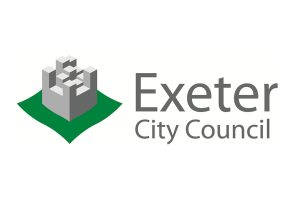“Council practices should be fair and transparent.”
.
The new administration at East Devon is endeavouring to put openness and dialogue at the heart of how it works:
Democracy and Transparency at East Devon – Vision Group for Sidmouth
Democracy and Transparency at East Devon: further steps – Vision Group for Sidmouth
.
Indeed, one of its first steps on coming into office, the new administration stated its determination to follow ‘due process’ – especially in the vexed area of planning:
District Council determined to improve probity in planning – Vision Group for Sidmouth
.
It was the lack of substantive dialogue and openness in process which largely brought about the decision to withdraw from the Greater Exeter project:
BREAKING: East Devon rejects Greater Exeter Strategic Plan – Vision Group for Sidmouth
.
And, indeed, the other participants have shown their reluctance to continue with this rather murky procedure:
Teignbridge set to reject Greater Exeter Strategic Plan – Vision Group for Sidmouth
Mid Devon set to reject Greater Exeter Strategic Plan: analysis – Vision Group for Sidmouth
.
The process has been dogged with unease about lack of transparency:
Is the Greater Exeter Strategic Plan GESPing for air? – Exeter Observer (2019)
.
In fact, the council at the heart of the GESP – namely, the city council – has been dogged with unease about lack of transparency, as in this attempt two years ago to ask a few questions:
.
The investigative journal The Exeter Observer has been asking questions about transparency at the city council for some time:
Exeter City Council executive members take direct control of city planning decisions – Exeter Observer (Sept 2020)
Unelected Liveable Exeter Place Board created to oversee city from the shadows – Exeter Observer (July 2020)
Exeter City Council cuts scrutiny of executive decision-making – Exeter Observer (Oct 2019)
Caught short – balancing the books in a hurry – Exeter Observer (June 2019)
.
And, finally, a question editor of the Exeter Observer, Peter Cleasby, put back in April 2019:
What does your council know that you don’t know you don’t know?
Extracting information from councils is hard work but increasingly necessary for local democracy.
Getting Rumsfeld’s statement word perfect is challenging, but it nevertheless readily comes to mind when observing and monitoring English local authorities. As long ago as 1960 Parliament passed the Public Bodies (Admission to Meetings) Act – sponsored by a newly-elected back bench MP called Margaret Thatcher – which forced local authorities to hold their meetings in public unless specific exemptions from that rule applied. The detailed rules have been updated from time to time, but the principle remains the same.
What we get under these rules is of course what councils want us to see. To be fair, officer reports seeking a decision – considered by councillors in public session – often contain a wealth of detail, including nuggets that councillors might prefer were not public. Some reports, and most financial ones, require a degree of knowledge or decoding expertise not possessed by most people. So is this enough to enable we, the people, to scrutinise and hold our councils to account?
Let’s look at what is readily available…
What does your council know that you don’t know you don’t know? – Exeter Observer